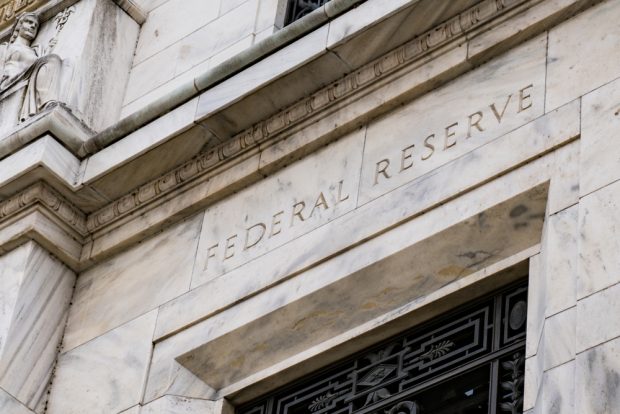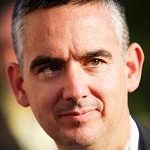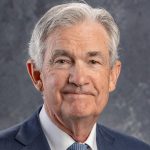 Federal Reserve Building in Washington, D.C.
Federal Reserve Building in Washington, D.C.
Credit/Shutterstock
And on Tuesday, the Fed paused.
The Federal Open Market Committee (FOMC) had raised interest rates in each of its last 10 meetings. The federal funds target range went from 0 to 0.25% before the March 2022 meeting to 5% to 5.25% after its last meeting ending May 3.
Recommended For You
But Fed Chair Jerome Powell said nearly all FOMC members expect to raise rates further by the end of this year. Half of FOMC members expect the federal funds rate to reach 5.6% by the end of this year before falling to 4.6% by the end of 2024. Those median expectations are half a percentage point higher than at the March meeting.
"It may make sense for rates to go higher, but at a more moderate rate," Powell said.
NAFCU Chief Economist Curt Long said most FOMC members are expecting two more rate hikes over their last four meetings of the year from July 25-26 to Dec. 12-13.
 Curt Long
Curt Long "The FOMC held rates steady in June but framed it as a temporary pause," Long said. "The median committee member projects two more rate hikes over the second half of the year. That is a win for the hawks. For the doves, they bought more time to see if inflation truly has hit an inflection point and will decline at a faster pace in the third quarter."
Mike Fratantoni, chief economist for the Mortgage Bankers Association, said MBA economists expect economic conditions are changing in a way that makes further hikes unnecessary. Yet the Fed said it plans two more rate hikes anyway.
 Mike Fratantoni
Mike Fratantoni "Unfortunately, this only adds to the chances that the economy will slow sharply," Fratantoni said. "Given the banking challenges that have already resulted in a tight credit environment, the threat of further hikes, baked in to medium-term rates today, will only further slow economic activity."
Fratantoni said mortgage rates have generally increased in the past month, slowing housing market activity. "We expect that mortgage rates will drift down over the second half of the year as the economy slows and the Fed reacts accordingly by holding off on further rate hikes," he said.
The FOMC made clear it was sticking to its goal of reducing inflation to a 2% annual rate, but having trouble getting there.
The U.S. Bureau of Labor Statistics reported Tuesday that inflation fell sharply in May. The Consumer Price Index in May was 4.0% higher than May 2022, the smallest 12-month inflation rate since March 2021 and down from a 4.9% inflation rate in April. The 12-month inflation rates have fallen each month since hitting a high of 9.1% in June 2022.
Yet Powell said the FOMC members have been disappointed as they watch the price index for personal consumption expenditures (PCE) that excludes volatile food and energy prices. Core PCE inflation was 4.7% in April, a 12-month rate that has been essentially unchanged since at least December.
 Jerome Powell
Jerome Powell "We want to see it moving down decisively," Powell said.
"We'd like to see credible evidence inflation is topping off and starting to come down," he said. "We don't think we're there yet."
FOMC members expect core inflation to end the year at 3.9% — more pessimistic than their expectation of 3.6% in March.
At the same time, they are more bullish about the economy this year. Most expect real gross domestic product to grow 1% this year and 1.1% in 2024. In March they expected GDP gains of 0.4% this year and 1.2% in 2024. Likewise, they expect unemployment to end the year at 4.1% this year, down from their March forecast of 4.5%.
Powell said most analysts have been surprised by the resilience of the labor market, which has supported strong household spending. "It's really the engine supporting the economy."
But Powell said the economy might be slowed by delayed effects of past rate hikes and credit tightening. By skipping a rate hike this month, the committee will have more time and more data to study when it next meets in July.
"That gives us more information to make decisions," he said. "We're trying to get this right."
© Touchpoint Markets, All Rights Reserved. Request academic re-use from www.copyright.com. All other uses, submit a request to [email protected]. For more inforrmation visit Asset & Logo Licensing.







